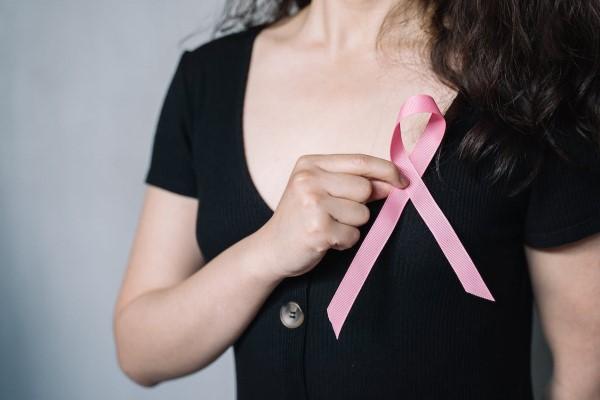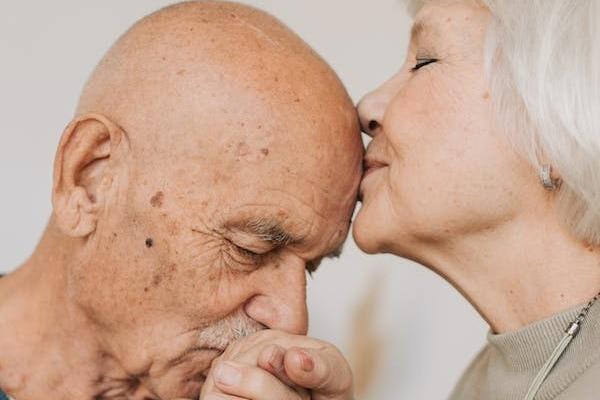
For Teachers & Professionals
Stroke and Sexuality
A stroke is a medical emergency that affects 17 million people worldwide each year, and for which prompt treatment is crucial. An ischemic stroke occurs when the blood supply to part of the brain is interrupted or reduced, preventing brain tissue from getting oxygen and nutrients. Brain cells begin to die in minutes. The chance of dying from a stroke varies greatly according to where in Europe you live. Currently, rates of deaths from stroke in different EU member states range from 30 per 100,000 of the population to 170 per 100,000 of the population and the number of people having a stroke and living with its long-term effects will rise in the coming decades.
Therefore, aside from short-term intervention, there must be policies regarding long-term support to patients and their families.
One of the areas that need to be targeted is sexuality. Best practice guidelines recommend that all stroke survivors and their partners receive tailored information and counseling regarding sexuality.
Here are 5 important struggles after a stroke:
1. Silence about sexuality within the couple and with doctors
Stroke survivors and their partners struggle to openly talk about sexuality. Reasons for this struggle include not wanting to cause distress within the relationship, believing that the stroke survivor was no longer capable or interested in engaging as an intimate partner, fearing rejection, and a lack of shared understanding of the experience of stroke. This silence can damage the relationship, and in some cases, increase feelings of isolation and loneliness. The silence around sexuality experienced within relationships is reinforced by health professionals who do not acknowledge the impact of stroke on sexuality and fail to discuss post-stroke sexuality. As a result, stroke survivors and partners are unprepared for the impact of stroke on their sexuality, are uncertain about the validity of their concerns and are uninformed about where to get support.
2. Changes to pre-stroke relationships
Stroke-related functional loss fundamentally changes the nature of the roles and the pre-existing relationship. Physical and cognitive impairments, communication difficulties and post-stroke fatigue mean that pre-existing responsibilities (often allocated according to gender norms) have to be reallocated or conducted differently. The change of roles can thus lead to a feeling of diminished position within the relationship. The role destabilization in the couple can impact the sense of identity, for example a wife could feel more “like a mum” to the partner.
3. Relationship with one’s own body
Stroke survivors can become more aware of their body as if it cannot be relied upon to function effectively without monitoring. This feeling of functioning differently can bring frustration, as well as the fear of being seen by others as weak, brainless, and dull.
4. Sexual intimacy A lot of stroke survivors are relieved to find that their sexual response doesn’t seem to have been affected. The rate of patients who take up again sexual intercourse after the onset of the first stroke is pretty high. The decision when to resume sexual intimacy is influenced by the presence of stroke-related impairments, which can lead to a feeling of less spontaneity during intimate activities. Stroke survivors with communication impairments have also difficulty expressing a sexual desire to their partners, while those who experienced altered bodily sensations have a limited desire for intimate contact from others. For some stroke survivors with high levels of post-stroke fatigue, sexual intimacy is deprioritized due to other more demanding roles.
5. Sexual function
Post-stroke sexual dysfunction can be caused by multiple etiologies including organic (lesion site, pre-existing comorbidities, medication, etc.) and/or psycho-social factors (fear of recurrence, self-esteem, anxiety, and depression), making necessary a multi-perspective point of view. Elderly patients can have minimal sexual dysfunction before the onset of stroke. This dysfunction would only be a factor of decompensation or increase. The most prevalent sexual dysfunction for female patients is a decrease in sexual desire, while in male stroke survivors, there is an elevated proportion of decreased sexual desire, ejaculation disorders and erectile dysfunction. The disparity in the frequencies of different post-stroke sexual disorders may be due to the following factors: location of brain lesion; severity of motor deficit; degree of dependence for acts of everyday life; a moment of sexual disorder outcome in the course of medical patient examination because sexual problems can be temporary, continue or get worse over time; involvement of hypertension, diabetes mellitus, medication and psychosocial factors.
Knowing the areas of struggling serves as an important basis to build consistent psychosexual counselling or intervention.
REFERENCES
Calabrò, RS, Gervasi, G, Bramanti, P. (2011). Male sexual disorders following stroke: an overview. Int J Neurosci; 121: 598–604.
Diatewa, J.E., Banzouzi, P.E.G.S., Mpandzou, G.A., Latou, D.H.B.M., Ontsira, G.-G., Aloba, K.L.O., Odzebe, A.W.S. and Ossou-Nguiet, P.M. (2021) Post-Stroke Sexual Disorders and Its Real-Life Experience within Couples in Brazzaville. World Journal of Neuroscience, 11, 22-33. https://doi.org/10.4236/wjns.2021.111004
McGrath, M., Lever, S., McCluskey, A., & Power, E. (2019). How is sexuality after stroke experienced by stroke survivors and partners of stroke survivors? A systematic review of qualitative studies. SAGE Journals, 33(2), 293-303. doi.org/10.1177/0269215518793483
Steinke, EE, Mosack, V, Hill, TJ. (2013). Sexual self-perception and adjustment of cardiac patients: a psychometric analysis. J Res Nurs; 18:191–201.
Stroke Foundation (2017). (Australian) clinical guidelines for stroke management. Melbourne, VIC, Australia: Stroke Foundation.
Share the knowledge!
More For Teachers & Professionals Q&A

Intellectual disability and Sexuality – Part 1: How stereotypes affect the person’s with intellectual disability relationships and sexual attitudes

Breast cancer, sexuality and communication

Teaching consent to Young children (8 – 12 years old)

Taboo topics: Masturbation

Communication About Sexuality in Advanced Illness and Palliative Care Context

Testicular cancer and Sexuality
This is a website that WE are building together. If you have a question there is no answer to on this site, send it here!
